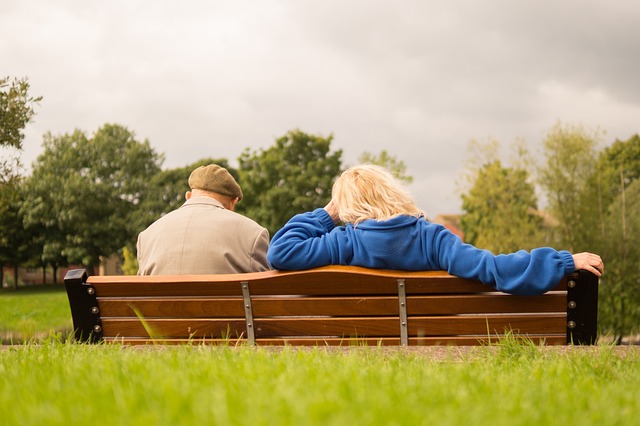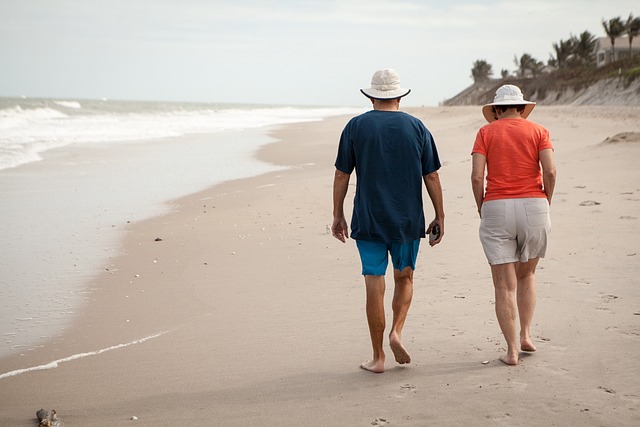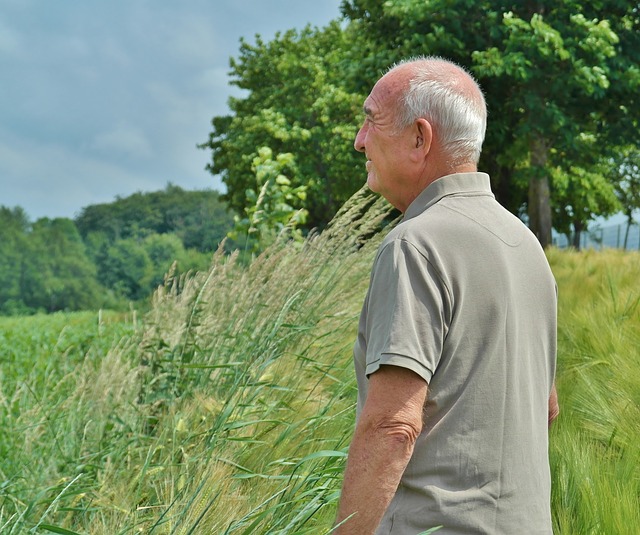Are you concerned about the safety of your elderly loved ones who live alone? It’s only natural to worry, especially when they may be at a higher risk of accidents or emergencies. The good news is that there are steps you can take to help ensure their well-being and peace of mind. In this article, we’ll explore some practical tips and strategies to keep your seniors safe and secure while they enjoy the independence of living alone.
One of the first things to consider is creating a safe and comfortable living environment for your senior loved one. This may involve making modifications to their home, such as installing handrails in the bathroom or removing trip hazards. Additionally, it’s essential to ensure that their home is equipped with functioning smoke detectors, carbon monoxide detectors, and a well-maintained security system.

In addition to the physical environment, it’s crucial to establish a regular line of communication with your senior loved one. Checking in with them regularly via phone calls, video chats, or even in-person visits can help you stay updated on their well-being and address any concerns promptly. Encourage them to reach out if they need assistance and make sure they have a list of emergency contacts readily available. By establishing open lines of communication, you can provide the support and assistance they need while respecting their independence.
There are also various technological solutions available to enhance the safety of seniors living alone. For instance, medical alert systems with wearable devices allow your loved one to call for help at the touch of a button. Similarly, home monitoring systems can provide additional security by detecting abnormal activity or emergencies and alerting both the senior and their designated contacts. Exploring these technological options can provide an extra layer of safety and peace of mind for everyone involved.
In conclusion, ensuring the safety of seniors living alone requires a multi-faceted approach that includes creating a safe living environment, maintaining regular communication, and exploring technological solutions. By taking these proactive steps, you can help protect your elderly loved ones while respecting their independence. In the upcoming article, we will dive deeper into each of these strategies and provide more detailed tips on keeping seniors safe and secure in their living arrangements. Stay tuned! Living alone can be a wonderful experience for seniors, allowing them to maintain their independence and enjoy their own space. However, it also comes with its own set of challenges and concerns, particularly when it comes to ensuring their safety. As loved ones or caregivers, it is crucial that we take proactive steps to create a safe living environment, establish effective communication channels, provide comprehensive care, address transportation needs, be prepared for emergencies, foster a supportive community, and provide access to resources and supportive services.
Recognizing the Vulnerabilities of Seniors Living Alone
It is important to understand the vulnerabilities that come with aging and living alone. Seniors may face physical health challenges, such as reduced mobility, poor balance, and chronic conditions. Additionally, cognitive decline and memory loss can make seniors more susceptible to accidents or forgetting to take medications. Loneliness and isolation can also have a negative impact on mental health and overall well-being.
Understanding the Risks Associated with Aging
As we age, our bodies become more fragile, and even simple tasks can become difficult. Falls are one of the most common risks for seniors, and they can result in serious injuries, including broken bones and head trauma. Other risks include burns or scalds, medication mismanagement, kitchen accidents, and even home invasions. Understanding these risks allows us to develop strategies to mitigate them and ensure the safety of seniors living alone.
The Negative Impact of Isolation on Seniors’ Well-being
Isolation can have a detrimental effect on the physical and mental well-being of seniors. It can lead to depression, anxiety, and a decline in cognitive function. Social interaction, on the other hand, has been shown to improve overall health and well-being. It is essential to find ways to combat isolation by promoting regular social engagement and fostering a supportive community.
Creating a Safe Living Environment for Seniors
One of the first steps in ensuring the safety of seniors living alone is to create a safe living environment. This includes implementing home safety measures such as installing grab bars in bathrooms, securing rugs and carpets, and eliminating trip hazards. Ensuring proper lighting and accessibility throughout the home is also crucial, including installing bright LED lights and removing obstacles that may obstruct pathways.
Utilizing assistive technologies can also enhance the safety of seniors. For example, medical alert systems can provide quick access to emergency help in case of falls or other emergencies. Smart home devices, such as voice-activated assistants and movement sensors, can also assist in daily tasks and alert caregivers or emergency services when necessary.
Establishing Effective Communication Channels
Regular check-ins and maintaining constant contact with seniors living alone is vital for their safety and well-being. Making sure they have a reliable way of communicating, whether it’s through a landline telephone, cellphone, or video call, allows them to reach out for help when needed. It also provides an opportunity for loved ones and caregivers to check on their well-being and offer support.
Utilizing emergency response systems can provide an additional layer of safety. These systems enable seniors to easily call for help in case of emergencies, and many come with features such as fall detection or GPS tracking, ensuring quick and accurate response when needed.
Enlisting the support of neighbors and the community is another important communication channel. Building strong relationships with neighbors enables them to keep an eye on seniors living alone and alert caregivers or emergency services if they notice anything out of the ordinary.
Developing a Comprehensive Care Plan
Collaborating with healthcare professionals to develop a comprehensive care plan is essential for seniors’ safety and well-being. Regular medical check-ups allow for early detection and management of any health issues or concerns. It also provides an opportunity to assess medication management and ensure compliance.
Monitoring medication management is particularly important for seniors living alone, as forgetting to take medications or taking them incorrectly can have severe consequences. This can be addressed by using pill organizers or medication reminder apps that provide alerts and notifications.
Promoting Physical and Mental Well-being
Physical activity is crucial for the overall health and well-being of seniors. Encouraging regular exercise, whether it’s through daily walks, gentle stretching, or participating in senior-friendly exercise classes, can improve strength, balance, and flexibility. Healthy habits such as maintaining a nutritious diet, staying hydrated, and getting sufficient rest are also important for seniors living alone.
In addition to physical well-being, supporting mental health and cognitive function is equally vital. Engaging in activities that stimulate the mind, such as reading, puzzles, or learning new skills, can help maintain cognitive abilities. Providing opportunities for social engagement, such as joining clubs or senior centers, can also combat loneliness and isolation.
Addressing Transportation Needs
Transportation can often be a challenge for seniors living alone, especially if they no longer drive or have limited mobility. Ensuring accessible and safe transportation options enable seniors to maintain their independence and participate in social activities, medical appointments, and grocery shopping.
Arranging rideshare services or volunteer programs can be a viable solution for transportation needs. Many communities offer transportation services specifically for seniors, providing door-to-door assistance when needed.

Utilizing Emergency Preparedness Strategies
Being prepared for emergencies is crucial when it comes to the safety of seniors living alone. Creating an emergency plan that includes contact information for loved ones, healthcare professionals, and emergency services is essential. Discussing and practicing emergency procedures, such as evacuation plans or what to do in case of medical emergencies, ensures seniors are well-prepared and know how to respond.
Connecting with local emergency services and making them aware of seniors living alone in the community can also help facilitate quick responses in case of emergencies. Providing key information, such as medical conditions or special needs, allows emergency services to better understand the situation and provide appropriate care.
Fostering a Supportive Community
Building a supportive community is essential in ensuring the safety and well-being of seniors living alone. Encouraging neighborly interactions and watch programs can create a sense of security and deter potential criminals. Organizing community events specifically for seniors provides opportunities for social engagement and helps combat isolation.
Engaging with senior centers and organizations also allows seniors to connect with others in similar situations and access additional support services.

Providing Resources and Access to Supportive Services
Access to resources and supportive services is vital in ensuring the safety of seniors living alone. Offering information on local elderly support programs, such as meal delivery services, housecleaning assistance, or home health care, can provide additional support when needed. Connecting seniors with caregivers and home health services allows for regular check-ins and assistance with daily activities.
Financial aid and assistance programs can also alleviate the burden for seniors, ensuring they have access to the resources needed to maintain their safety and independence.
Conclusion
Ensuring the safety of seniors living alone requires a comprehensive approach that encompasses various aspects of their lives. By creating a safe living environment, establishing effective communication channels, providing comprehensive care, addressing transportation needs, being prepared for emergencies, fostering a supportive community, and providing access to resources and supportive services, we can help seniors maintain their independence while ensuring their safety. It is crucial to promote physical and mental well-being, combat isolation, and be proactive in addressing their unique needs. By taking these measures, we can ensure that seniors living alone receive the necessary support and care they deserve.


